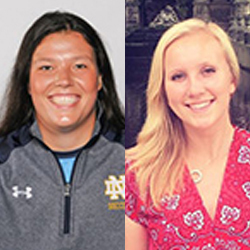
The Flatley Center for Undergraduate Scholarly Engagement (CUSE) at the University of Notre Dame promotes the intellectual development of Notre Dame undergraduates through scholarly engagement, research, creative endeavors, and the pursuit of fellowships. Although CUSE works with over 1,000 Domers each year, not everyone knows about all of its services. CUSE sat down with four senior CUSE Sorin Scholars — Kiley Adams (biological sciences), Ian Tembe (chemical engineering and philosophy), Grace Watkins (philosophy), and Emily Zion (biochemistry) [pictured in order below] — to speak about the benefits that CUSE has provided for them, and why other students should work with CUSE during their time here.
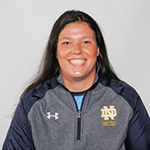
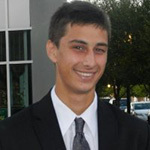
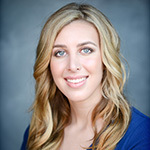
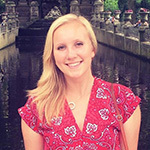
Q: What brought you into the CUSE office for the first time?
Ian Tembe (IT): I wanted to become a Rhodes Scholar, and I heard that CUSE was the place to go for guidance. Sorin Scholars appealed to me as well. The main selling point of Sorin Scholars for me was the individualized counseling on national and international fellowships offered.
Grace Watkins (GW): A professor suggested that I apply for the Sorin Scholars as a way of finding a community of intellectually curious, like-minded students, so I visited CUSE to learn more about the program. I also wanted assistance in learning how to marry my policy and organizing interests to academic research.
Emily Zion (EZ): Kiley and I talked about this yesterday. The first time we came to CUSE was for our Sorin Scholars interviews. Neither of us had known about CUSE as a freshman. I wish we had.
Q: What has being a member of the Sorin Scholars done for you?
Kiley Adams (KA): I found a really cool community. Not only through the group of other Sorin Scholars that we got to know very well, but also through great advising experiences. If we needed anything, whether it was purely academic, or less so, we always had a group to go to. The Sorin Scholars Coordinator told me in one of my appointments that I’d always had passion, I just haven’t always had direction. All of the advisors, and even my peers in the program, let me bounce ideas off of them, and they have helped be my compass. CUSE has always been there to guide my intellectual interests.
EZ: The best thing has been the interdisciplinary approach. I’ve met people through this program whom I would never have met otherwise. When you get focused on your own research, it becomes very narrow, especially coming from a science background. I forget that you can do research in the humanities, in architecture. Learning more about things that you didn’t know existed helps when looking at your own research.
IT: Sorin Scholars has given me an opportunity to engage in academic matters outside of class with those who share my passion for learning. I have stayed involved because I believe in and am dedicated to the mission of making such passion the norm on campus and fostering it in all who have it.
GW: Sorin Scholars is probably the main reason I was successful with the Truman Scholarship. They provided the motivation to apply and the support to follow through. They encouraged me to be genuine and bold with my personal statement and policy proposal.
Q: Tell me about your experiences applying for grants. Whether or not they were funded by CUSE, did CUSE help you in any way?
KA: Both the peer review and the advisor review process caught things that I would never have considered addressing. I know a lot about my field: Community Based Rehabilitation in rural India. It’s very narrowly focused, and as long as I am in that field I can speak very intelligently about it. I know the science, but I was proposing a project that included social science methods, including interviewing people. It was important for someone to tell me that I didn’t have any method of interviewing people. I’ve never interviewed anyone before. I know a ton about the sciences of disabilities, but it was important for someone to say, “Well, what questions are you going to ask?” Sometimes you write and you think you’re being very clear, but you forget to write in your own background knowledge. You forget to lay out all the steps from A-Z, because you know the middle steps. Your grant reviewer probably won’t know them.
EZ: Even though I haven’t done a grant application yet, I’m in the process of putting together one for winter break. I think people need to realize that it’s not an overnight thing. You can’t decide on Monday that you want to get a grant, write the whole application Tuesday, and submit it Wednesday. I think that’s with all application processes. You don’t realize how much is weighed on that feedback you can get from mentors and peers. Someone may bring up a small point, and your entire proposal can change. Realize that you do need to talk to people and use your resources available. If you’re serious about getting the funding to go and do the research you want to do, you have to put the time and effort in. That’s something that I think CUSE helps people with a lot.
Q: Tell me about working with CUSE staff in an advising/mentoring capacity? What does the office have to offer students that isn’t money?
IT: I received much personalized advice on my fellowship application process for the Rhodes, as well as on funding options for different programs I was interested in. As an NROTC student, my situation regarding postgraduate education/fellowships/etc. is different from many other students, and CUSE helped me work through that to achieve my goals, even as they changed over the years.
GW: Dr. Thibert [CUSE’s Associate Director] and the staff at CUSE have been hugely influential with my personal and academic development. They helped show me how my different activities are connected to each other and my value system.
EZ: I’ve never come into the office with any concern and not walked out feeling OK. Even if it’s a personal concern, or I’m just really stressed about having four tests in a week, and we have a meeting at CUSE, just talking to someone who can encourage me always helps. CUSE really turns from a place where you can get mentoring for grants and fellowships to a place where you can get mentoring for life. I walk in here and I see familiar faces. I know that I have a group of people here who will talk to me and support me in anything that I’m going through.
KA: Goals change so much. CUSE has been my catalyst for change these past four years. Even when I was in London, I would Skype in for a meeting and say, “Ok, this is today’s thought.” CUSE staff never got frustrated that I was often all over the place with the goals. They just wanted to hear what they were and how they could develop those further. I absolutely did not come in as a freshman thinking I had the skills or abilities to apply for a Fulbright, for example, but CUSE helped make me confident in both those things. That’s been a big part of working with CUSE for me.
Q: Tell me about your experience working with the CUSE fellowship team. Even if you don’t receive national awards, did you find the experience useful/helpful?
GW: The whole CUSE team was particularly helpful with putting the importance and stress of the Truman and Rhodes applications in context, as well as providing ample coaching on interviewing, which was my biggest weakness heading into the final round interviews for both scholarships. I think that national awards are worth applying for even without a guarantee of winning. The application processes forced me to finally decide my (tentative) life path and think seriously about what I value and why. It also gave me an opportunity to practice my interviewing skills and presentation of self
IT: Dr. Thibert has given me countless points of advice on the matter, as I’ve detailed above. This has been very helpful for discerning the details of my postgraduate career, even though it has largely been decided by my NROTC participation.
EZ: If you didn’t have CUSE, Notre Dame students would not be getting Fulbrights. The whole CUSE fellowship team has helped me work on showing my Fulbright qualities in my application — all of these components that I would’ve never considered putting in my application. I think, just looking at the progression from the first statements I submitted to what they are now, they are two completely separate things. My name is the same, but everything else is different.
The process is long, but it’s so worth it. You have to realize that you’re applying for an entire year of funding. You have to realize how big that is. If you really want that, you should take your chances. Also, Notre Dame has a super high success rate with Fulbrights. It’s a lot of work, but it’s also so rewarding. It gives you the opportunity to sit down and think about things: What makes me different? What can I use to make me stand out? How can I explain where I’ve been and where I want to go? I really want it. If it happens, then it’s great. If not, then it’s not for nothing.
KA: You learn just as much from the process. Even if I don’t get it, I had to learn a lot about my research by writing about it over and over. At the end of the day, you’re writing about something you’re passionate about. The process of having to explain it to others that have differing backgrounds is very important, even if you don’t get the award.
Q: Tell me about any leadership opportunities CUSE offered you.
IT: The CUSE team supported Lily Kang [‘16, another Sorin Scholar] and I through publishing a book (you can see more about A Letter to My Freshman Self here). Dr. Thibert and the Sorin Scholars Coordinator were the first people who took a project I was involved in seriously, and they treated Lily and I as adults who could achieve something in a very real sense. This experience was groundbreaking for me and has given me the courage to pursue projects in ways I previously would not.
EZ: Kiley and I both worked on the Admissions Committee for selecting new Sorin Scholars. It was a lot of work. We read over 100 applications each year. Knowing what people went through to look at my application made me respect the process so much more. When we made standards of what we were looking for in the applications, it made us think about our own applications for other things. What do we want to put out there so that an application committee will look at our work and say, “Yes, this is the person we want.” It was very eye opening.
Kiley and I are also both presenting at a Sorin Scholars research seminar, which gives us the opportunity to practice presenting our research to a group of interdisciplinary students. You have to learn how to explain things to people in other fields. It’s very important to make sure you can communicate these types of things to other people. The whole purpose of doing research is to benefit not just the scientific community, but the community as a whole.
KA: Outside of the Admissions Committee, even in the classroom we are able to be leaders. I’m comfortable speaking academically about what I’m doing. A lot of that is due to the fact that I’ve spent so much time writing and reviewing proposals and talking to other Sorin Scholars and faculty whose work is completely outside my sphere of knowledge. It has given me the confidence to step up and be a leader in my work outside of CUSE.
Q: What do you think is the most valuable service that CUSE offers?
IT: Without a doubt, it is the intellectual confidence it affords students. CUSE believes in the effectuality of students, and inspires this belief in themselves. Through grant awards, funding, and advising, CUSE helps cultivate intellectual leaders.
KA: For me, it has nothing to do with the money. It’s a nice afterthought. It has everything to do with people being willing to talk to me about everything. Whether it’s my friends through Sorin Scholars, or my CUSE advisors — it just comes down to a community for me. It’s a very supportive academic community. Even if I came into the office with a question that transcended CUSE’s specific roles of grants and fellowships, the staff is so connected on campus that they would always find me the right person to help.
EZ: A lot of students don’t realize the mentoring available here. This is an office full of people who can help students get places. A lot of people see CUSE as just money, but it’s not just that. The more you get to know people around the Center, the more you realize that they are willing to help you with anything they can, even though they have such busy schedules. The community Kiley mentions will come from that.
Q: How has CUSE helped to prepare you for life after college? What impact has CUSE had on your life, especially with regard to your future plans?
IT: As I’ve said above, CUSE has given me the courage to effect change. This will prepare me for the leadership role I must take as a Naval Officer.
EZ: CUSE goes beyond just what happens in Brownson Hall. I’m going to grad school — a place where you have to be much more independent and think for yourself. CUSE has given me tools to sit back and determine what I’m really interested in, and how I can approach that in a new role. Not to mention that I’ll need a personal statement for every school I apply to. Just going through the Fulbright process has helped with that.
Q: Why should other students at ND get involved with CUSE? What advice would you give a first-year student interested in scholarly engagement?
IT: College offers a wide variety of experiences: academic, social, spiritual, and career-related. Because the centerpiece of the university is scholarship, education, and academics, any college students who miss out on this aspect of the university outside the classroom, to pursue individual interests beyond the lecture hall or engage in deep conversation with like — and unlike — minded individuals are doing themselves a disservice. CUSE helps students to engage in that aspect.
KA: At some point, you have to be humble enough to realize that the plans you came into Notre Dame with will need adjusting. Your college experience will change who you are. You want to be around the right people to help guide you in the discernment process from who you are now to who you want to be. Being around people at CUSE is part of picking those “right people”. True education should put you outside of your comfort zone — CUSE does that.
EZ: If you want to apply for big things, or have a place that challenges you and gives you a hard academic push, that is CUSE. I think I’ve learned more in some of the hours I’ve spent here than I’ve spent in three to four hours of some classes.
Post-graduation, both Kiley and Emily hope to be working on Fulbright grants: Kiley in India and Emily in Germany. Kiley then plans to go to medical school to study pediatric physiatry in order to help children with movement disorders. Emily plans to go to graduate school to get her Ph.D. after her year in Germany. She wants to study cellular/molecular biology and eventually become a teaching/research professor at a university. Ian will graduate and commission as an officer in the U.S. Navy, at which time he will report to flight school in Pensacola, Florida, as a Student Naval Aviator. Grace will be using her Rhodes Scholarship to pursue a graduate degree at the University of Oxford, after which she will use her Truman Scholarship to pursue the Truman-Albright Fellowship in Washington, D.C., to work at a government agency for a year.
The Sorin Scholars Program is a CUSE-administered honors program. Students admitted to the program join a community united by members’ shared intellectual curiosity. Though they come from different disciplines and colleges, they are all brought together by a commitment to their scholarly formation; in this way, the Sorin Scholars are a microcosm of the university. Through programs, mentoring, and funding, each Scholar is given the opportunity and support to pursue his or her own research interests alongside other highly engaged peers.
The Flatley Center for Undergraduate Scholarly Engagement (CUSE) at the University of Notre Dame promotes the intellectual development of Notre Dame undergraduates through scholarly engagement, research, creative endeavors, and the pursuit of fellowships. If you would like to support undergraduate research or the Sorin Scholars Program, if you’re a current ND undergraduate interested in learning more about research or fellowships, if you’re an ND first-year student interested in the Sorin Scholars program, or if you’d like to learn how you can help the Center, visit http://cuse.nd.edu.
Originally published by at cuse.nd.edu on November 28, 2016.